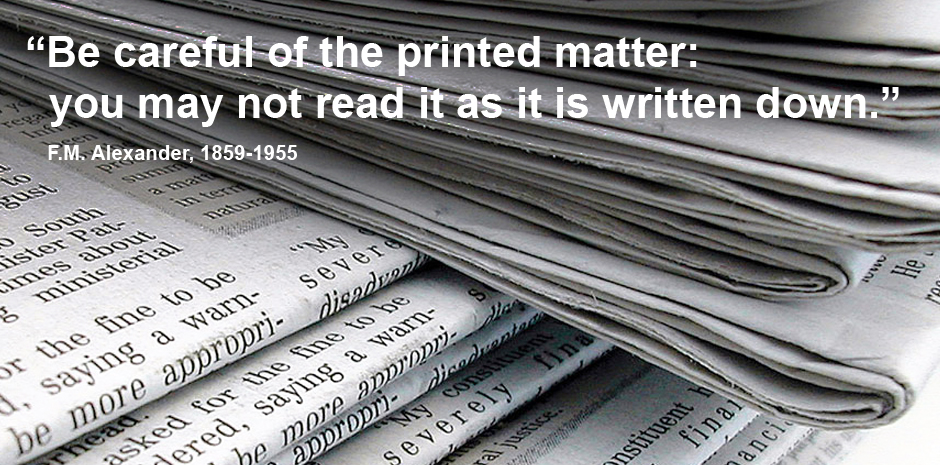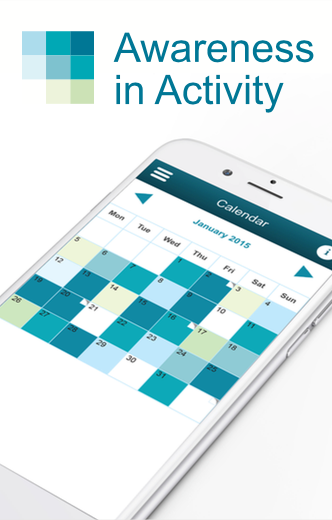Strad, Sep 2019
Interview by Catherine NelsonPeter Buckoke is a professor of double bass at London’s Royal College of Music, where he also oversees the Alexander technique department. He is also a founder member of the Schubert Ensemble.
When did you notice the first symptoms?
I started suffering when I went to music college, back in 1972. I must have been doing something really badly because I had headaches, neck pain and numbness in the left side of my face. I couldn’t play for more than 30 minutes at a time, and it even interfered with my vision – the lines and dots would start to move around on the page.
What was it about your playing that caused the pain?
I suppose I used to throw myself at the instrument in a very dramatic way. People would sometimes comment that my playing was so visceral that it looked like I was wrestling with my instrument when I performed. I think now that my attitude was responsible for the pain and the place I wanted to go to try to ignore the pain.
What did you do?
I saw doctors and osteopaths to try to get to the bottom of what was wrong. I also decided that I needed to become fitter so I did a lot of running. I became aerobically fit but it didn’t help. Soon I began to consider whether I would have to give up any hope of a performing career.
How did you discover a way to improve the pain?
The breakthrough came when I was talking to the cellist Alexander Baillie over a pint of bitter. He asked me if I’d tried Alexander technique. He explained he was having Alexander lessons at the Royal College of Music. I went to see Wilfred Barlow, one of Frederick Matthias Alexander’s acolytes. I was an impecunious student so he found a teacher for me who charged £2 a go. I had quite an intense programme, and after a time it became possible to play the double bass for longer. I had 60 sessions straight off, and it really saved my career.
What changes did your Alexander teacher recommend?
My Alexander lessons taught me that I had to learn to identify excess tension and especially not to do anything that would create tension in my neck. I needed to have a much more balanced and sanguine approach to performing.
Did you make these suggested changes immediately?
It was hard – at the time, I felt that I was giving something up. I identified effort and throwing myself around as total commitment, doing it properly, giving it my all.
What was the turning point?
The importance of making these changes was really brought home to me when I played in a recording for the BBC – music for an animation of Alice in Wonderland that was for just five instruments. When we listened back, I realised that all the shape I thought I was putting into my playing didn’t come out on the tape. So I was putting in all this emotion, but the audience was not getting it. Then I realised that Alexander technique wasn’t just about facilitating me being a player, but perhaps also about facilitating me being a better performer, and allowing me far more control to express myself.
What did these changes enable you to do?
I got really interested in the technique and after a few years of double bass playing after college I decided to train as an Alexander teacher. The course is three years of full-time training. I really didn’t have time to practise during this time and thought my playing would go downhill. But to my surprise it got immeasurably better. My coordination became much more refined and reliable, and I went from playing large-scale orchestral concerts to playing with the Schubert Ensemble and as a guest bass player with string quartets – basically doing stuff that was much more exposed. It transformed the nature of my musical career.
What’s the basic premise of Alexander technique?
Lots of people think that it’s just about getting your posture sorted out, but it’s much more significant than that. One of the most accessible things about it for musicians is reducing unnecessary physical tension, but it’s really about how you respond to stimulus in your life, recognising habitual patterns and realising that you have choices in how you respond. Spontaneity in performance is only possible if you aren’t straitjacketed by automatic feelings – your stock responses to harmonic tension, for example. Alexander brings a freedom from habit to performance. You can give a fresh response to the harmonic structure of the piece, to how your colleagues are playing, to the particular acoustic and the unique audience. You’re entering the realm of true spontaneity.
https://www.thestrad.com/playing-hub/double-bassist-peter-buckoke-on-treating-head-and-neck-pain/1922.article







